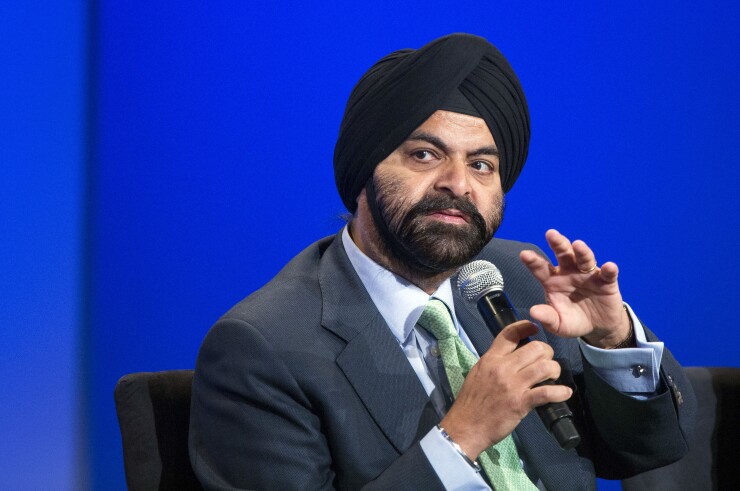With rapid business and technology changes sweeping across global payments, Mastercard is challenged to place the right stakes in the ground.
Its financial numbers for the fourth quarter of 2017 suggest a strong start, as the card brand delivered a 25% year-to-year increase in net income to $1.2 billion and 18% growth in revenue to $3.31 billion.
Like most incumbents in financial services and payments, Mastercard is navigating almost daily changes, from company mergers and partnerships to advancing payments delivery and security.

"My general net take on all of this is that it is still a wide open field and it will be years before you can say who is playing what game here," Mastercard president and CEO Ajay Banga said during Thursday's fourth-quarter earnings and fiscal 2017 conference call. "All I am trying to do with our company, what all of us are doing, is we want very much to be part of that game."
Banga was commenting on an example of ever-changing payments systems, after references to the previous night's announcement that eBay was adding Adyen for payments processing, while keeping PayPal as a payments option at checkout.
"So much is going on in that whole space," Banga said. But things have changed since the days when Mastercard and Visa were simply options on an e-commerce checkout drop-down list, with MasterPass leading the charge for Mastercard in that area, and tokenization becoming a key security model.
"Our own efforts with branded checkout points is moving forward," Banga said. "And we have a great relationship with PayPal, which includes co-branded and corporate cards, and all of the understanding in how their wallet works, and all of the non-steering to ACH agreements."
PayPal reached
"We are going to keep investing in tokenization and secure checkout, and enhanced consumer experience and in digital, doing all kinds of things with banks and merchants in that space," Banga said.
The company will also invest in its development community, APIs and SDKs, as well as research and development in is own labs, Banga added.
"We have a whole sea of strategies in digital to make us not be anywhere other than at the forefront of what is going on here," he said.
Mastercard also reported 5% growth year to year in the number of cards in circulation, citing 2.5 billion Mastercard cards and 603 million Maestro debit cards at the end of the fourth quarter.
The company will remain optimistic about its retail portfolio growth, also announcing it had landed the card portfolio business for the large outdoors sporting retailers Bass Pro Shops and Cabela. Banga estimates those co-branded cards will be in place sometime in the coming year.
Mastercard has not hesitated to continue its advancements in customer authentication, recently revealing it will have its
It's an important step for Mastercard, as it continues to work with its biggest clients and banks in Europe to adjust to the PSD2 directives taking hold this year.
The company also plans to get "
The company expanded tokenization into 21 markets in the past year, reaching a total of 1,200 issuers in 46 markets using the service.
Mastercard said the new tax law in the U.S. resulted in a one-time $873 million hit to the bottom line because of adjustments with foreign holdings.
"We see this a very positive development for the country, particularly in the near term," Banga said of the new tax law. "Businesses will have an increased capacity to invest, and consumers will have more disposable income."





